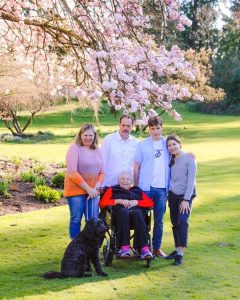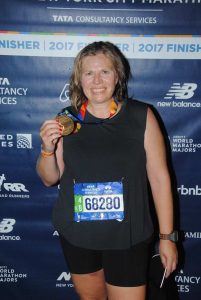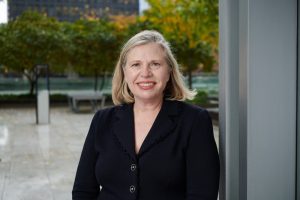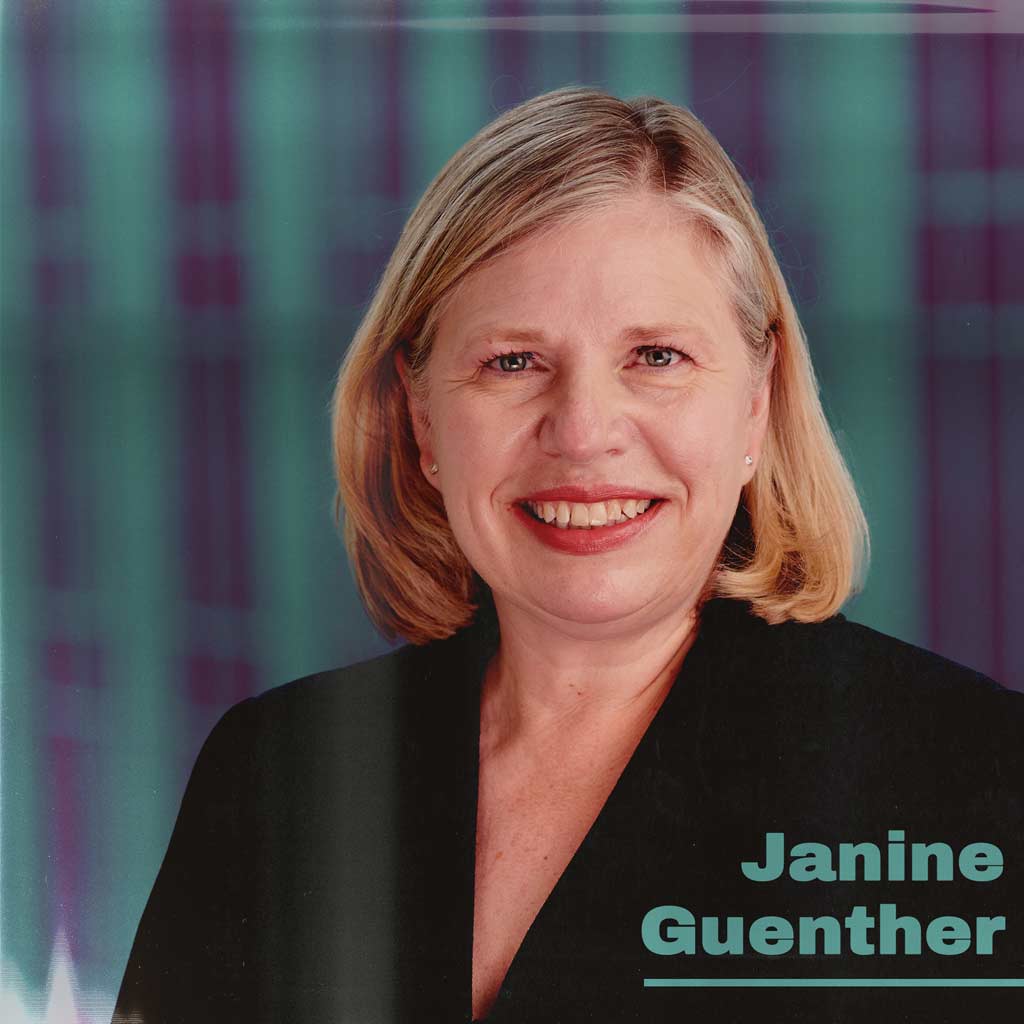CATEGORIES
Leadership and Networking | People We Admire | Women EmpowermentOverview:
- Growing up in a grocery store in a very small town, Janine Guenther was always told to work hard, go to university, and get a job by her parents.
- Starting her interest in finance at a very young age, she successfully secured a commercial lending trainee position with Lloyd’s Bank during the global recession.
- The life-changing point in her life began when she started her CFA. She was able to start applying to analyst positions; thus, she could meet all kinds of people from all over the world.
- Starting her career at Dixon Mitchell three years ago, she found her perfect fit in her professional life.
- Janine Guenther considers herself blessed enough to have all those good amenities in life—a perfect job, a great family that supports her, and a nice social life—making her want to focus on giving back, volunteering, and doing good things for her surroundings.
What was your childhood like, and were there some key moments which developed your passion for wealth management?
I grew up in a very small town in Manitoba called Starbuck—like the coffee shop. My parents owned the grocery store in that town, and it served a farming community of about 3500 people. I grew up in the grocery store and am the third of four daughters. Our parents really brought us up as Europeans and said, “You’ve got to work hard, go to university, get a job, and things are going to be fine.”
I started getting interested in finance when I watched a show called Sesame Street with a segment on the stock market. When I was seven years old, I told my dad that I wanted to work in the stock market, so he started ordering Forbes magazine for us to read together. Every week we read one article which furthered my curiosity.

I got my first job during the global recession as a commercial lending trainee with Lloyd’s Bank, which had a Canadian affiliate. Working a few years in the special credit department got me very interested in evaluation and how things can be worked out ahead of time before they become a real problem. And that’s how I got started on my CFA. It was life-changing for me to actually have the credential that could get me into the equity market. I was still working for the bank, but I was able to start applying for analyst positions. I got a US equity analyst job and worked at Great-West in Winnipeg for about five years.
Through grading CFA exams and volunteering at different CFA institutes I was fortunate to meet all kinds of people, from all over the world. When I learned about different countries, professional opportunities and cultures, I started visualizing the potential projects I could develop through my CFA charter.
The opportunity to work at Dixon Mitchell arose three years ago. I felt honored to be asked to be a part of this firm. I found a perfect fit with this organization culturally, people-wise, and client-wise. That’s my professional life. But my professional life would not be where it is today without my volunteer life.
What are your most important life values, and how have they contributed to the progression of your career in the financial industry?
I think it’s to be optimistic, and that’s a big part of figuring things out because it’s not always easy. My dad used to say, with his very thick German accent; to show up, pay attention, and hope for the best. That’s what I’ve done. It’s not perfect all the time, but nothing is perfect. It happens within the investment industry as well. So, when some people say that the world is coming to an end, I look at it this way: bad news sells newspapers. That is why, on days like that, I decide to take an optimistic approach and research what there is out there that could create benefits for my clients and me. What’s on sale today that’s really good value, and what can I add to the portfolio that makes sense?
What vision have you set for yourself in the coming years?
I needed to become smarter in data science, so I started to join a beginner course. As the firm’s president, I need to have a good perspective of what is needed today for our firm to be successful. I need to be able to ask intelligent questions to my staff. So that’s something I need to learn about data science in the coming years. I’m a beginner, but I can figure it out with a bit of time, ask many questions, and just keep going until I find the answer.
Another of my visions is to keep growing and challenging myself. I have a good friend, and when we turned 50, which was five years ago, we decided every five years, we will do something unexpected and monumental we’re not sure if we can do, but we’ll try.
In the year we turned 50, we signed up, trained for, ran and completed the New York Marathon. I had never been a runner and never did anything like that. It took about nine months to train. It was about 11 hours from the time we got up in the morning till the time we got to the finish line.

This year, we turned 55. We decided to do something locally in Vancouver. There’s a beautiful trail here called the Baden Powell Trail, about 42 km long. It’s about the same distance as a marathon but has about 3000 meters of elevation change in that time frame. So in July of this year, we started at 05:00 in the morning, and it took us about 15 hours to make the trail because it’s through the forest, trees, and a little bit of scrambling up rocks. We made the whole trail. It was much harder than the marathon because no one was cheering us on. We just had to keep going. But it was a beautiful day; we saw the beautiful forests and many ocean views, and we had a good time. I don’t know the next thing we’ll do when we turn 60, but I’m sure it will be interesting.
What was your biggest obstacle in life, and how did you overcome it?
I think my biggest obstacle is myself. I’m always worried about whether I am good enough or smart enough. I worry about whether people will find out I don’t know anything. We, especially women, all have that imposter syndrome, and sometimes negative self-talk can really crush you. You have to be your own cheerleader, and hope you have a good partner that cheers you on as well. I’m very lucky that I married a guy who is enthusiastic about both of our careers and took time off when our kids were born, sharing the first year of their lives. For the obstacle, I try to talk myself out of thinking I’m not good enough or else. I choose to keep asking questions and be optimistic that I’ll figure it out eventually.
Your LinkedIn account shows how active you are in the community, specifically in volunteering. Why do you think it is important to volunteer?
Well, if you’re lucky enough to have as many opportunities as I have had, I think it’s important that you give back, and it’s as simple as that. Specifically, I have received many blessings in my life, so I wanted to give back. I volunteered for an organization to promote youth development, sports and my profession to extend the privilege and opportunities I have received.

What advice would you share with our community of young people?
Things are so much better in the world today than when I was young. My advice to young people is to stay abreast of technological developments, keep reading, and study history. We get smarter because there have been so many people ahead of us who have made mistakes that we can learn from. And the only way that we can learn from them is to study history and keep reading.
Conclusion:
In her journey, Janine highlights the importance of following your passion, even if it may be “unconventional”. At the same time, she has also focused on giving back, doing good, and constantly challenging herself to try new things. As someone who volunteered for an organization to promote youth development, she always told young people around her to expose themselves to new opportunities and keep learning every day.


